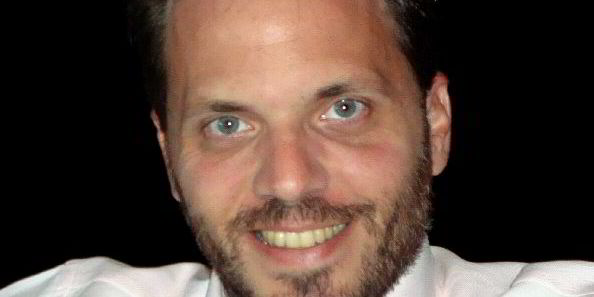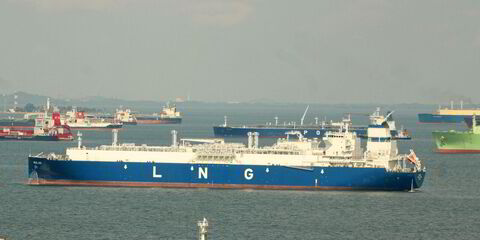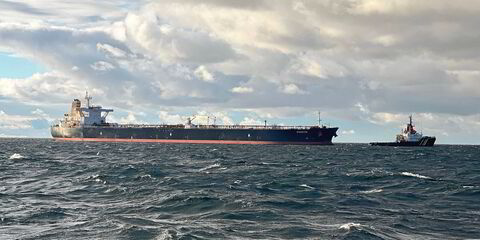Evangelos Pistiolis, the Times Square-quotedtanker and bulker owner’s CEO, says fears surrounding the company’s long-termforecast are “laughable” and has no doubt about its ability to survive adownturn that continues to wreak havoc on some of shipping’s brightest stars.
“Maybe some people want to see problems,maybe they want to bad mouth us but I don’t care,” he told TradeWinds. “We areone of the few companies that didn’t have to restructure our loans post-Lehman.We are current on all our payments and have strong, visible cash flows.”
Pistiolis is confident the company’s lonesupramax bulker and six medium-range product carriers, which are due to earn between$9,000 and $14,500 daily through 2018 and 2019, are helping to pave a pathtoward profitability.
“If there were a major disaster andsomething changed, if one of my top three charterers died in my hands tomorrow-maybe we would have a problem then but if nothing really big happens I don’tsee any problem with our company. We are in a good position given the times.”
When the price is right...
While steady cash flow is vital toweathering the storm, Pistiolis also intends to move forward with another roundof cost cutting measures that will target salaries and other areas like feespaid to third parties such as Central Mare- the Pistiolis family’s shipmanagement wing.
The CEO says he has no immediate plans tooffload assets unless “the price is right” even though the company’s 2011 annualreport set the stage for vessel sales based on “projections that found cash provided by operating activities will notbe sufficient to cover scheduled debt repayments”.
“It sounds a lot more dramatic than itactually is,” he said when asked about the warnings. “These are comments thatall listed companies in the world have to make in times where balance sheetsand cash flows are tight because of the auditing and legal aspects of thematter.
“Legally I cannot put it another way, Ihave tried, I have talked with the lawyers who say: ‘I understand and you areright but you are going to present the situation in a way as if you were to dietomorrow.’
“Theexcess loans that can’t be covered by cash flow will be forwarded by one or twoyears so hopefully soon we won’t have that issue anymore. Once these things arecovered then we will be able to take it easy and focus on cash flow, it’s thatsimple, wait for the market to normalise.”
Pistiolis, who controls approximately80% of the company’s shares, says he will continue to focus on the preservationof liquidity in the near-term and admitted that curing a Nasdaq minimum marketvalue deficiency is not the most pressing item on his list of top priorities.
“Cash flow is the main issue, I amtrying to prioritise problems,” he continued. “We are examining options tobring the share price back up but right now, and for the past two years, therehasn’t been an appetite for shipping stocks in the [US].
“When the appetite becomes higher in theStates we will do a lot to get the message across. It will turn again like it alwaysdoes but right now spending $200,000 doing road shows or marketing in timeswhere money is of great importance- it would just go down the drain.
“So let’s say marketing helps [shares]go to $1.20 or $1.80, big deal, it doesn’t save anyone from the story. It wouldnot be money well spent at present, maybe in six months or a year but not now. Ihold 80% of the company, what am I going to do, market to myself?”
Appropriate percentages, expansion and offshore
When investors return to the shippingsector Pistiolis says the time will be right to “start doing offerings” whiletaking steps to reduce his stake in the Athens-based owner to around 20%- apercentage he described as “appropriate” for an individual in his position.
“I am tired of answering sillybackstabbing comments about me trying to takeover the company,” he added. “I justlaugh at them because I could have taken the company a long time ago but inreality I wanted to put my money where my mouth is; show my faith in thecompany.
“When the time comes we are going issueshares to buy new things and then people we see what I am talking about. I willgo down to 20%, somewhere where a founder CEO should be. I don’t like where Iam but I am facing the music, it’s not my fault the world collapsed.”
Pistiolis, who described himself as a moreof an “expansion person” than “conservative person", did not elaborate on whichsectors Top would target but made the case for a strategy that he claims willcontinue to serve the company well.
“You have to be adjustable to the times, youhave to know when to shrink and know when to expand,” he said. “If I didn’t shrinkin 2008 I would have had huge problems, poor values and poor cash flows, itwould have been a disaster.
“Shrinking and expanding is an art,saying ‘I want to grow ‘is nice to say but you have to do it right. Not everyday is a growth day. Some days you have to go back to go forward. 2008 and 2009was the time for steps back. Sometimes you have to clear the past to get to thefuture.”
The executive did not rule out any potentialgrowth segments, however, and readily admitted that a decision to appoint arepresentative in Brazil was motivated by an interest in the burgeoning offshoresector.
“We have one guy in Brazil who focuseson looking at offshore, meeting with Petrobras and maybe doing something new,finding some new business,” he said. “I think it makes sense having someonedown there, maybe he will get his hands on something that makes sense.”



